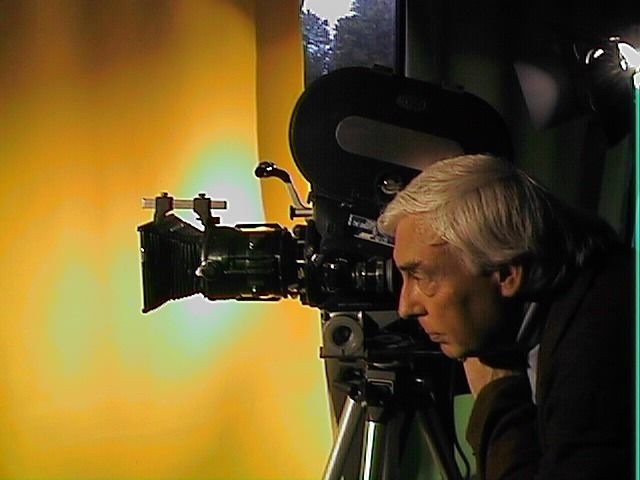ASK & DISCUSS
INDEXCrowdcube for feature films – does it exist? Is there a need?
10 years, 3 months ago - Tim Keeling
Crowdcube is the world’s leading investment crowdfunding platform. They enable anyone to invest alongside professional investors in start-up, early stage and growth businesses through equity, debt and investment fund options.
What if there were an online investment crowdfunding platform for feature films? This would fundamentally differ from the likes of Kickstarter in that the investor would be entitled to future profits.
Does this already exist? Is there a need?
Only members can post or respond to topics. LOGIN
Not a member of SP? JOIN or FIND OUT MORE
10 years, 3 months ago - Marlom Tander
It's a bit subtext but there's a lot of filmmakers who confuse INVESTORS with PATRONS. They think they want the former, when they actually want the latter. Kickstarter is about Patrons, and this is a GOOD THING for low budget "stories that must be told".
PATRONS will support your art, your vision. INVESTORS might be attracted by your vision, but they'll only invest if your expenses numbers seem realistic and your revenue ones plausible, (in a worked up defensible fashion, not plucked from the air).
Slated are right to have a 10K min - it ensures that the investors actually have an investors mindset, and can afford the potential losses without damaging their standard of living, and that is more important, ethically, than actually making any particular movie.
10 years, 3 months ago - Franz von Habsburg FBKS MSc
Hi all. I've also just invested through Goldfinch in what I believe will be a winner - another great BRITISH film with that amazing feel-good factor! The trailer is at https://vimeo.com/121900817 (password kyts100315) and it's now in post. Enjoy!
10 years, 3 months ago - Lee 'Wozy' Warren
I believe that there are already feature films, or have been, or Crowdcube. Not sure how successful they were.
I think that with crowd funding like Kickstarter, people know exactly what they are getting in return for their 'pledge'. But with making an investment, there is a completely different expectation. I think you'd attract a different group of people for the investment than for a pledge.
I've heard banded about a cross over, a mix of the two. You make an investment, but also get 'something' as well as a possible return - DVD, signed script, etc... But not seen any website/business that is actually doing it yet.
Wozy
10 years, 3 months ago - patrick astwood
Such platforms already exist, the problem for feature films is because they are seen as a risky business model they do make a good sell for typical investors. Films more often than not lose money, and the movie business has comprehensively failed to structure and monetize itself in a way that suits both creatives and investors. In fact the best advice you can give to an investor is don't invest in film, period.
10 years, 3 months ago - Dan Selakovich
There's Slated, but that is a minimum 10k dollar investment. BUT they have a large number of film investors within their membership.
10 years, 3 months ago - Lee 'Wozy' Warren
@Patrick Astwood - if people took your advice, no films would get made. Rather a silly statement in all honesty.
10 years, 3 months ago - Dan Selakovich
Patrick: "comprehensively failed to structure and monetize itself in a way that suits both creatives and investors."
No, it hasn't. Here's the model that works: investors get 100% of the money until they recoup 110%, then it's a 50/50 split between the producer and investors. Points for writers, directors, etc. come out of the producer's end. I think the reasons are obvious, so I won't bother pointing them out. What needs to be solved now is distribution.
As for a life of a film being 10 years... I just don't buy that one. The general rule of thumb is that a film has pretty much exhausted all ancillary markets within 5 years. I would argue that with digital everything, that has been slashed to about 3 years, unless it hits a pirate site, then you're looking at 18 months at best.
Here's a list of movies released in 2005. I challenge anyone to find 10 movies on this list that they watched (and paid for) this year. http://www.the-numbers.com/movies/year/2005
10 years, 3 months ago - Paddy Robinson-Griffin
>> Marcus predicts he will have fully recouped within 10 years and after that, the film will continue to bring in revenue at "NO COST"<<
Just my 2p on this - there isn't 'no cost' when it comes to handling money, and the revenue after a decade is more or less spent out. Of course some films will have some endurance, the Ealing comedies will always have a platform, but many films won't draw an audience once the theatrical and DVD/VoD (promoted) rush has finished. The bulk of the money will be over by year 10 - but there will still be the collection overhead which will absorb a lot of what free money there is. This is not as much of a big deal if you've a slate of 40 films where the collection overhead is spread across them all, and can sell the films as a package, but if you've 2-3 then you have a lot less bargaining power and increased costs.
So yes, there will be free money and kudos to Marcus for a great promotional angle, but it's not going to be big residuals on a single film.
10 years, 3 months ago - Vasco de Sousa
The problems with crowdcube are
1) The (film) company needs to be less than two years old.
2) There is a limit to how much money can be raised (and it's pretty small.)
3) It's limited by geography who can invest.
There are other limitations, but I think these are the worst for film productions.
The main advantage, in my opinion, is that you don't have to deal with rewards. However, when you consider the work involved in getting a film to market, especially with such a tiny budget, you start to wonder if crowdcube is really worth it. Even Blair Witch Project raised more money than Crowdcube allows, so did Pi. Low budget films raised money before "crowdfunding" became digitized.
Partial funding is always an option, but it's pretty difficult for companies that are young enough to meet crowdcube's criteria.
I'd be interested to see if Goldfinch's movie is any good. One thing I notice is that the producers actually look older than me! Most crowdfunders look like students. I like the idea of crowdfunding working for older people. I wish them the best of luck.
10 years, 3 months ago - Tim Keeling
Reading the breakdown of Marcus Markou's 'Papadopalos & Sons' on Stephen Follows' blog http://stephenfollows.com/the-full-costs-and-income-of-a-1million-indie-film/ Marcus predicts he will have fully recouped within 10 years and after that, the film will continue to bring in revenue at "NO COST". This long-term investment strategy coupled with the ease of online investment suggests this could be a game-changer for the way features are funded.
Hypothetically (all figures for argument's sake):
You could spread-bet that $10k Slated investment that would otherwise have gone on only 1 movie on 10 movies and 10 years down the line, hopefully one of them is a winning horse. If not – well, all 10 films were funded and made so at least we're culturally richer and we're increasing opportunities for filmmakers worldwide.
There are at least 5 of these equity funding websites already out there, but none are specifically for funding features.
10 years, 3 months ago - Kevin Boyd
I am currently investing in my first feature film "2 Hours" via Goldfinch http://www.goldfinchentertainment.com
Goldfinch request a minimum of £5K for investing but then they use the UK government's SEIS / EIS structures, that protect a lot of the downside and make the upside tax free!
The producers of 2 Hours have also used IndieGoGo to raise some funding for a particular high profile scene https://www.indiegogo.com/projects/2-hrs and unlike Kickstarter
IndieGoGo allows you to keep what ever amount you raise, even if it falls short of the requested amount.
So this hybrid approach, gives access to both Investors and Patrons.
10 years, 3 months ago - Paddy Robinson-Griffin
Seedrs has part equity funded some UK features - we're not talking big numbers, but worth a look.
10 years, 3 months ago - patrick astwood
@ Lee Warren - I am a filmmaker myself and know how hard it is get films financed. But it is a truism that investors are traditionally averse to film as an investment. If you bothered to read my comments carefully I suggested that the film business come up with a model that helps both creatives and investors. My suggestion about investors avoiding film was merely rhetorical, to emphasize the point. Finally, please refrain from insulting people in a public forum, there really is no need and it only reflects your own pomposity and arrogance.






